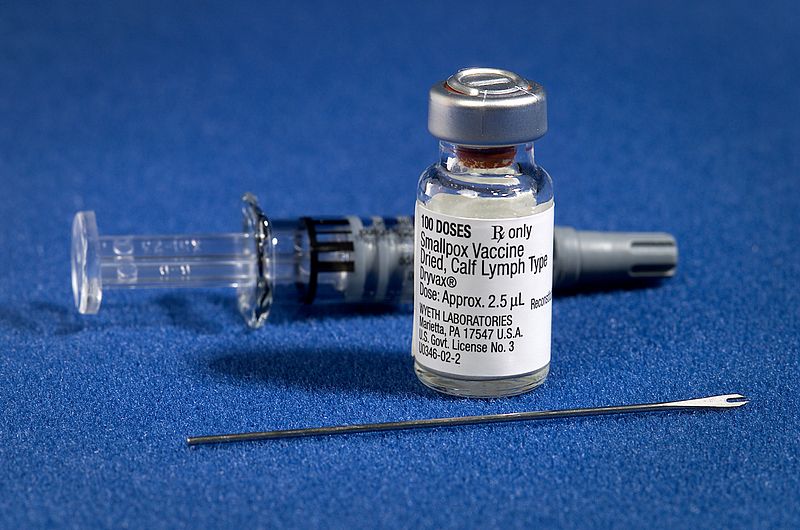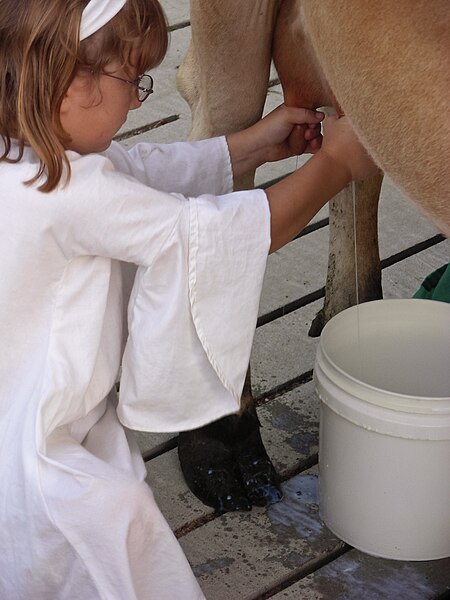 The other day, I was watching an episode of Private Practice. This medical drama follows the lives of numerous doctors and their experiences while running a private practice in California. (clever title, eh?) Now, I am fully aware that this depiction of what any medical profession is really like is extremely distorted but every now and then, I pick up on something interesting that sends me off on a tangent. The scenario that I am writing about today has to do with vaccinations. A nervous mother refused to allow one of her sons to take the MMR vaccines (of course during a rare outbreak of measles) because another one of her sons had autism and had been vaccinated. I was not aware that there was some belief in the medical/general community that the MMR vaccination could cause autism. I did some digging and learned there are tons of myths about vaccinations!
The other day, I was watching an episode of Private Practice. This medical drama follows the lives of numerous doctors and their experiences while running a private practice in California. (clever title, eh?) Now, I am fully aware that this depiction of what any medical profession is really like is extremely distorted but every now and then, I pick up on something interesting that sends me off on a tangent. The scenario that I am writing about today has to do with vaccinations. A nervous mother refused to allow one of her sons to take the MMR vaccines (of course during a rare outbreak of measles) because another one of her sons had autism and had been vaccinated. I was not aware that there was some belief in the medical/general community that the MMR vaccination could cause autism. I did some digging and learned there are tons of myths about vaccinations!

 For years, the majority of people have viewed vaccines as life savers. Vaccines have prevented millions of deaths and have increased life quality for millions of others. So how come vaccines have recently come into disrepute? I think it may have to do with the fear of science. Science can be an extremely complex world for some so they choose to believe what they hear which often turns out to be incorrect myths. It may boil down to poor communication. How science is communicated is crucial and sometimes, poor communication can lead to a misinterpretation of facts. Having a needle poke into your arm can be scary enough, fill that needle with some solution of a virus and it makes sense that some people would be a little on edge.
For years, the majority of people have viewed vaccines as life savers. Vaccines have prevented millions of deaths and have increased life quality for millions of others. So how come vaccines have recently come into disrepute? I think it may have to do with the fear of science. Science can be an extremely complex world for some so they choose to believe what they hear which often turns out to be incorrect myths. It may boil down to poor communication. How science is communicated is crucial and sometimes, poor communication can lead to a misinterpretation of facts. Having a needle poke into your arm can be scary enough, fill that needle with some solution of a virus and it makes sense that some people would be a little on edge.
 Back to the issue about autism, just like in Private Practice, parents have been refusing the MMR (measles, mumps, rubella) vaccine for their children. In fact, the University of Michigan found that, “93 percent of pediatricians had at least one parent who refused a vaccination for their child during the past year.” Since Andrew Wakefield released his paper on this issue in 1998, parents have been paranoid. However, the paper has since been deemed as scientific misconduct and not a viable source for information. The media went crazy over the article and made it out to be much more than it really was. Even though the paper has been discredited, unfortunately there are still some parents who believe in it.
Back to the issue about autism, just like in Private Practice, parents have been refusing the MMR (measles, mumps, rubella) vaccine for their children. In fact, the University of Michigan found that, “93 percent of pediatricians had at least one parent who refused a vaccination for their child during the past year.” Since Andrew Wakefield released his paper on this issue in 1998, parents have been paranoid. However, the paper has since been deemed as scientific misconduct and not a viable source for information. The media went crazy over the article and made it out to be much more than it really was. Even though the paper has been discredited, unfortunately there are still some parents who believe in it.
I believe that vaccines are good and safe however, a part of me is a little paranoid. I know that vaccines save lives and I know that I believe in the science behind them but I understand the myths and fears that have surrounded them as well. I see the issue from both sides. Getting a shot is just plain scary! I don’t even blink when it comes to having blood drain out of me but when I am injected with something that is it of my control, I get a little nervous. It’s weird and I know I shouldn’t feel this way but I do! How do you feel about vaccinations?